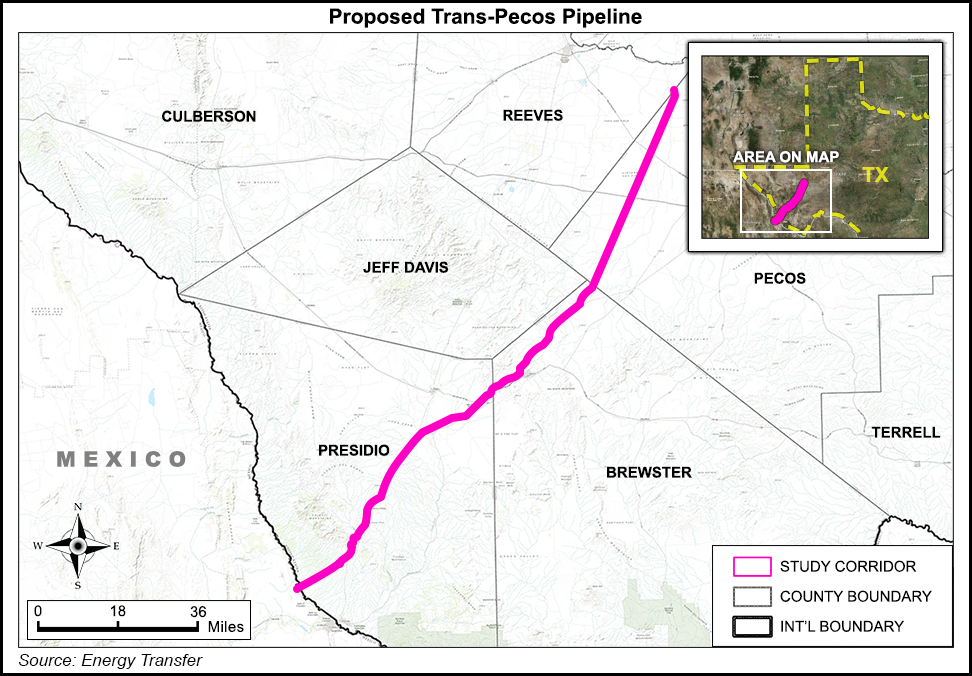Infrastructure | NGI All News Access | Regulatory
Sierra Club Again Seeks Jurisdictional Status For Trans-Pecos NatGas Pipeline
The Sierra Club is seeking rehearing of FERC’s permitting of the Trans-Pecos Pipeline LLC border crossing in Texas and Mexico, arguing that the entire project, and not just the border crossing, is an interstate pipeline and subject to Commission Natural Gas Act jurisdiction.

In May the Federal Energy Regulatory Commission issued a presidential permit for border-crossing facilities near the city of Presidio in Presidio County, TX, and the Mexican city of Manuel Ojinaga in the state of Chihuahua (see Daily GPI, May 9). Trans-Pecos is a project of Energy Transfer Partners LP and Mexico-based Carso to export up to 1.3 Bcf/d of U.S. natural gas at the International Boundary between the United States and Mexico.
In its filing Monday, Sierra Club said FERC was wrong to conclude that the 148-mile Trans-Pecos is a non-jurisdictional intrastate. “The Trans-Pecos pipeline is likely to transport some interstate gas when it initiates service, rendering the pipeline an interstate pipeline subject to FERC’s Natural Gas Act jurisdiction,” Sierra Club said [CP15-500].
“…[E]even if the Trans-Pecos pipeline does not immediately transport interstate gas, the facts that Trans-Pecos is building the pipeline with the explicit expectation that it will be used for interstate transport, that Trans-Pecos is a new entity not currently engaged in any existing pipeline service (intrastate or otherwise), and that the Trans-Pecos Pipeline will connect an interstate hub with an export facility, without meaningfully connecting to existing intrastate facilities, demonstrate that the Trans-Pecos Pipeline is being constructed for the purposes of interstate transport within the meaning of Natural Gas Act section 1 and 7, and therefore subject to FERC jurisdiction.”
The pipeline has garnered widespread opposition from landowners and environmentalists concerned about the Big Bend National Park (see Daily GPI, May 21, 2015). Parties filing comments in the border crossing proceeding focused mostly on the larger pipeline project, even though it is said by the Commission and project backers to be outside federal jurisdiction. Opponents had sought a more rigorous environmental impact statement for the entire pipeline, not just an environmental assessment for the jurisdictional border crossing (see Daily GPI, July 27, 2015).
© 2024 Natural Gas Intelligence. All rights reserved.
ISSN © 1532-1231 | ISSN © 2577-9877 |
